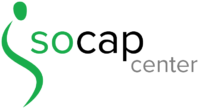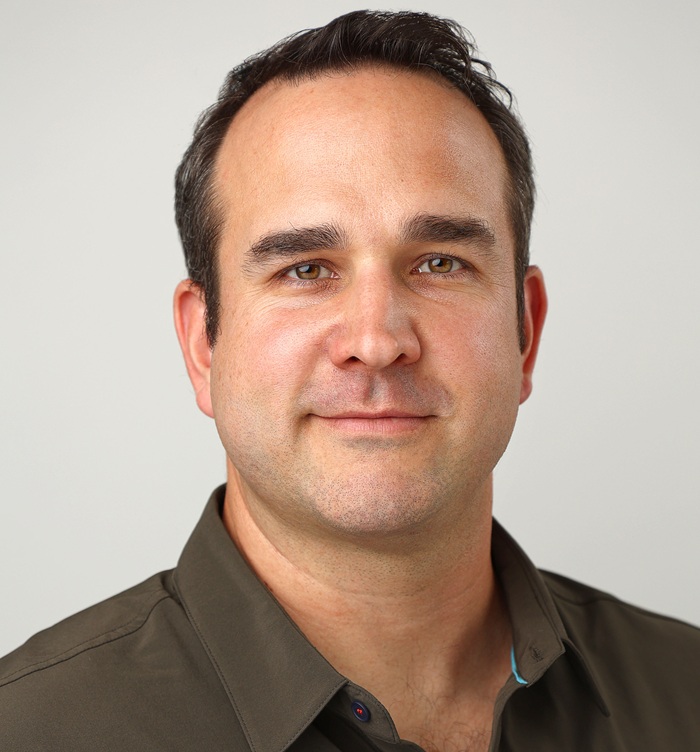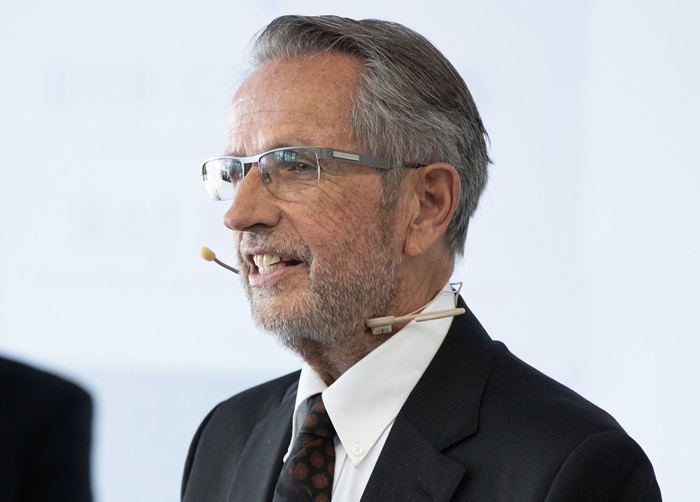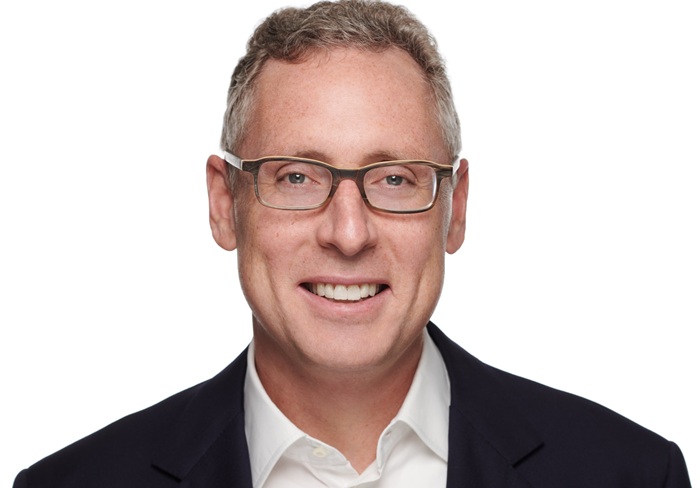The Well-Being Wake-Up Call: Work Burnout Is at DEFCON ONE!
By Chris Benguhe, RaeAnne Marsh and Elaine Pofeldt | June 4, 2025 1:09 pm
It’s a crisis that business leaders must respond to now to protect their people – and their profits.

Burnout is no longer just a buzzword. Companies prioritizing employee well-being as an antidote to burnout are seeing indisputable long-term success. (Image: iStock/BeritK)
Howard Schultz, former CEO of Starbucks and a true trailblazer of people-centric business, famously once said, “Success is not sustainable if it is defined by profit alone. We must also consider the well-being of our people and the communities we serve.”
Today, those words ring more relevant than ever. Because work burnout is no longer just a buzzword — it’s a very real crisis affecting employees, businesses and entire industries with astronomical costs to health, productivity and, ultimately, profits.
A recent Glassdoor report revealed “the share of reviews mentioning burnout has increased 32% year-over-year as of Q1 2025, bringing it to its highest level since this data began in 2016 and 50% higher than Q4 2019 before the COVID-19 pandemic began.”
And the financial toll is staggering. Burnout costs businesses $322 billion annually in lost productivity, while healthcare costs related to workplace burnout range from $125 billion to $190 billion per year.
That’s not only a business crisis but a society-wide disaster — and how can any of our businesses thrive in that kind of toxic environment?
With billions lost in productivity, and the health and happiness of countless individuals on the line, it’s a business imperative for leaders to take action now!
So this month, we are shining a spotlight on what we consider to be one of our most important and timeliest principles at the Center for Social Capital: well-being and CEOs who prioritize it. These visionaries realize they must invest in the health and happiness of their people, their customers and their communities to realize their own success and that of their companies. If they do, the rewards are extraordinary.
Companies prioritizing employee well-being as an antidote to burnout see indisputable long-term success. Gallup research showed 21% greater profitability in teams when well-being is a priority. A Harvard Business School study found that companies investing in employee well-being see stronger customer satisfaction and lower staff turnover, both of which drive profitability. A recent Oxford study analyzed 15 million workplace well-being surveys and found companies with higher well-being scores had better valuations, return on assets, and profits.
It’s also a powerful way to reduce absenteeism and healthcare costs, and to retain and attract talent, not to mention just plain making the workplace a whole lot more enjoyable a place to be for everyone. And we believe wholeheartedly that happy people make for happy and successful leaders and companies.
So, who’s leading the charge? How can companies build a culture that prevents burnout? What role does leadership play in the future of wellness?
Well, for the second year in a row we were thrilled to not only receive so much involvement from our network of esteemed and honored CEOs for this feature, but also quite a few different perspectives and approaches by these leaders on their definitions and methods of serving well-being. Subsequently, we realized that well-being comes in many different shapes, all just as important and essential to the idea of people-centric business and capitalism.
That’s great news for us at the Center for Social Capital and great news for the nation and the world in general that these gentle giants of capitalism are making this one of their ultimate goals because they believe it’s important and the right way to run their companies.
In fairness to our other Social Capital companies, we recognize that many of them who did not contribute to this article support well-being in powerful ways as well, and we hope to feature them potentially next time around.
All our honorees understand that Social Capital is all about a greater understanding of the importance and real value of respecting humanity in business and life through better treatment of customers, employees and the communities in which businesses operate.
That’s more important now than ever as we see some other sectors of our society seemingly forget that the idea of increasing general well-being is the ultimate goal of any evolved civilization.
And maybe the business world, at least those steeped in Social Capital, can lead the rest of our society to a kinder, gentler consideration of how to respect others.
Congratulations to these companies; we thank them for promoting well-being. And for sharing, in their own words what they believe well-being is all about and how they support it.

“We know in order to take great care of our customers, our people must first take care of themselves.” —Ed Bastian (Image: iStock/Parradee Kietsirikul)
Ed Bastian, CEO at Delta Air Lines
At Delta, our wellness strategy enables our people to be their best and enhances their sense of purpose, belonging and affinity by providing high-value health and wellness offerings. Our Delta Wellness team takes a holistic approach to wellness — supporting our people from a physical, emotional, social and financial perspective. Over the last year, Delta has continued to enhance our employee wellness benefits, expanding our national network of pharmacies, launching a new program for nutrition and making in-network care more accessible. These offerings are a result of our annual company-wide survey, which provides a quantitative and qualitative assessment of our people’s total wellness. We strongly believe in a feedback-driven, people‑first philosophy, which allows us to elevate the employee experience while achieving a culture of safety, high performance and care.
One specific program I am especially proud of is Delta’s Emergency Savings Program, which allows eligible employees to earn up to $1,000 from Delta to fuel their emergency savings after completing a financial education and coaching program and contributing to an emergency savings account. The goal of this program is to give our people peace of mind by contributing to their financial wellness and helping to prepare them for the unexpected.
At Delta, we do not only want our people to be well, but we want them to flourish. We know in order to take great care of our customers, our people must first take care of themselves.
Jasmine Jirele, President & CEO at Allianz Life Insurance Company of North America
Allianz Life has prioritized and enhanced several of our key wellness programs this year.
Earlier this year, we increased our focus on workplace resilience. For us, this means supporting employees to balance workloads, take advantage of workplace flexibility (including additional hybrid scheduling around holidays alongside four fully remote weeks each year), support a culture of listening, and encourage mental health support when employees need it. We are also placing an increased focus on helping employees adapt to changing priorities and handle unexpected events more efficiently.
To support this, we are educating and empowering employees to speak with managers when they need support and offering additional training to help people managers become better listeners and more effectively support their teams.
Another key resource to help support our employees during challenging times is our True Balance initiative. This program offers benefits, amenities and perks designed to nurture employee health and well-being; champion their professional and career growth; care for their financial security and literacy; and support a strong, inclusive community inside and outside our organization. Through True Balance, we offer comprehensive health benefits, ongoing education on wellness and financial topics, and a focus on cultivating resilience.
Employees also have free access to our onsite fitness and wellness center, which offers a variety of in-person group exercise classes, state-of-the-art cardio and strength machines, and certified personal trainers. Our onsite health clinic offers comprehensive care at little to no cost for benefits-eligible employees and their families, with services from an onsite nurse practitioner and mental health provider. Recognizing the importance of mental health support, we make it accessible and affordable by providing it directly on campus.
Through any combination of these programs, employees can find their unique balance and support wellness that works for their lives.
Richard Moore, President & CEO at The Good Feet Store
As a portfolio of leading health and wellness brands, Modern Performance + Recovery Brands (MPRB) should practice what it preaches regarding the well-being of our employees. This past year, we explored a wholesale change to our wellness benefits and plan for all our brands and teams. We researched other leading companies, we surveyed our employees, we held HR Q&As, and we welcomed 1:1 conversations to collect input and perspective from our employees about the strengths and weaknesses of our current plan.
We were surprised to learn that our employees, ultimately, did not want any major changes to our wellness benefits and plan.
But what’s most important is the process we undertook. We did the right thing by our people — hearing their views, proposing alternative options and keeping the status quo — by taking our time and by not rushing a decision or change. And our employees are happier for it.
Karla Trotman, President & CEO at Electro Soft Inc.
As a small manufacturing company, we found that our annual health insurance rates were rising while the offerings were declining. My goal has always been to provide benefits that are not only competitive but also as appealing as those of a larger corporation. Not being large enough to take advantage of self-insurance or level-funded plans, we decided to explore Professional Employer Organizations.
The PEO allowed us to present a more comprehensive benefits package. Instead of offering age-banded rates for healthcare, we now provide four distinct plans, one of which includes a Health Savings Account managed by the PEO. We have expanded our offerings for vision, dental and wellness programs, and Electro Soft continues to cover 60% of health insurance, regardless of whether employees enroll as individuals or families. While the Employee Assistance Program and retirement planning were previously available, the addition of pet insurance and prepaid legal advice has given our employees added peace of mind. Ultimately, our benefits enrollment numbers increased, and the staff were enthusiastic about the new offerings.
Our approach reflects something that companies sometimes overlook: True wellness begins with health and security. When your staff isn’t preoccupied with external factors such as health and wellness, they can bring their full selves to work.

“The good news is that employees and their families can be empowered with the ability to control their attention, use digital technology in ways that benefit them, and defend against stress-based persuasion and cognitive exploitation.” —Keith Wakeman (Image: Pixabay/Gerd Altmann)
Keith Wakeman, Founder & CEO at SuperBetter
Today’s employees are more distressed than ever. The new 2025 Gallup “State of the Global Workplace” reports that 50% of U.S. employees experience high daily stress, and 69% are disengaged at work. An often-overlooked culprit: The human brain is under attack. The human brain is designed for a different time, and advances in digital technologies have made it relatively easy for others to exploit its vulnerabilities for their own benefit. As a result, employees feel increasingly unsettled, and struggle with stress, poor mental health, cognitive overload, difficult emotions and social disconnection.
The good news is that employees and their families can be empowered with the ability to control their attention, use digital technology in ways that benefit them, and defend against stress-based persuasion and cognitive exploitation. SuperBetter is an innovation company, and we want to collaborate with an enterprise organization to develop and pilot a program that integrates Digital Warrior Workshops, Resilience Mindset Training and tech-enabled tools for ongoing support and reinforcement. This human-centered approach can unlock the potential of employees in their professional and personal lives, enhance the success of work-teams, advance the goals of well-being and talent development departments, and even reduce risks of human vulnerabilities in cybersecurity.
Kirk Reynolds, Founder & CEO at Wilder Retreats
We believe that the strongest cultures are built from within, and that includes how we take care of our own people. Our internal wellness program is designed to mirror the impact we create for our clients: grounded in nature, centered on connection and focused on sustainable well-being.
Each year, our team steps away from screens and schedules to participate in our own immersive retreat. These gatherings aren’t just perks. They’re a vital part of how we stay aligned, inspired and connected. We participate in the same restorative and energizing experiences we offer our clients: guided sound bath meditations; nature bathing practices; expert-led sleep coaching; and shared adventures like team hikes, whitewater rafting and rock climbing. These retreats allow us to slow down, reflect on our purpose, and return recharged.
Well-being is built into our everyday work life. We actively encourage time in nature, regular movement and breaks away from screens. Many of us work from standing desks or take walking meetings. Meditation, breathwork and mindfulness practices are not just supported, they’re normalized. And when the workday ends, we disconnect. Evenings and weekends are protected as time to reset, spend time with family, and simply live. We believe rest is a strategic asset, not a weakness.
This way of working keeps us sharp, creative and resilient. It also allows us to be more present for our clients, more collaborative with our teammates and more fulfilled as individuals. The result is not only a healthier team but also a higher quality of work, deeper empathy for our clients and a stronger belief in what we offer.
With our clients, our approach to wellness over the past year has evolved from offering wellness activities to designing integrated wellness experiences. In the past, clients might request yoga or meditation as add-ons. Today, we’re embedding wellness into the entire retreat architecture — from how the agenda flows to the pace of conversations to the environments we choose.
This shift reflects a broader change in how we define wellness. Traditionally, wellness was positioned as something that sits outside of work — or even in opposition to productivity. But we’ve redefined that relationship. At Wilder, wellness serves the business. When leaders and teams are well — physically, mentally, emotionally — they’re more innovative, more collaborative and more capable of navigating complexity.
Our clients consistently report boosts in productivity, engagement, creativity and cohesion after retreat experiences that prioritize real restoration and alignment. When you help people return to themselves, they return to work stronger.
Wellness, in our current thinking, is less about escape and more about alignment. It’s helping leaders and teams reconnect with purpose and return with energy and clarity.
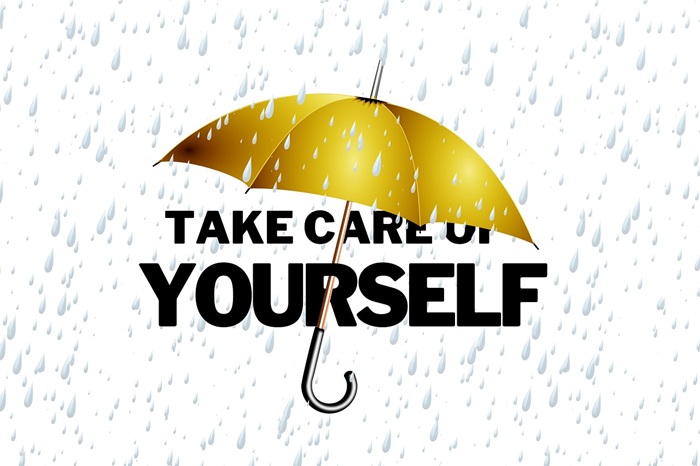
“Wellness, in our current thinking, is less about escape and more about alignment. It’s helping leaders and teams reconnect with purpose and return with energy and clarity.” —Kirk Reynolds (Image: Pixabay/Gerd Altmann)
Dr. Christie Smith, Founder at The Humanity Studio
Over the past year, I’ve seen a real shift among leaders who are serious about well-being — not as a benefit, but as a business strategy. They’re moving beyond wellness perks like fitness stipends and meditation apps toward something more foundational: trust, agency, purpose and connection.
In a volatile environment defined by uncertainty, the most effective organizations are rethinking how work is structured, how leaders show up and how psychological safety is created across teams. As we explore in our book Essential, the results are compelling: Companies that embed well-being into their culture — not just through isolated programs, but through leadership behaviors and systemic support — see an average return of 6 to 1 on wellness investments. When mental health is addressed meaningfully, employers save approximately $2,300 per person in annual health plan costs. And the stakes are high: Employee burnout is already costing the global economy an estimated $322 billion a year in lost productivity and turnover.
This isn’t about perks — it’s about performance through people. The truth is, employees can’t thrive in environments where they’re seen only as outputs. I work with leaders who are building systems that give people real agency — through intentional career development, coaching access and meaningful inclusion practices. When people feel seen, heard and trusted, they don’t just stay — they grow. And when they grow, so does the business. We’re not just managing talent anymore — we’re cultivating it. That’s the kind of leadership this moment demands.
Justin Steltenpohl, CEO at P.B. Bell
P.B. Bell’s company culture is not only a priority, but it is the key to our nearly 50 years of success. Prior to COVID, we established a culture club whose focus is employee engagement, and they execute various activities throughout the year to encourage collaboration, recognition (such as peer-to-peer recognition for those going above in displaying their values in their work activities), and wellness (such as employee appreciation days, volunteer events, wellness challenges and our annual holiday event).
P.B. Bell loves to get creative and tried out two new initiatives in the past year. We had a “Love Yourself” campaign where we encouraged staff to put wellness at the forefront of their days during an entire month. One example of this: We encouraged employees to take a walk around their community and share photos of these outdoor workouts. Another example: We did a “Cuddle Bunch” event with the Arizona Humane Society, where they brought in puppies to bring joy to the office, and we donated to the organization. P.B. Bell also offers personal perks to employees. Some of these include RecoveryOne (that includes a virtual PT solution with a designated health coach to assist with exercise and meal plans), financial wellness support with direct access to company-sponsored financial planner (Voya) and quarterly retirement educational meetings, wellness visit incentives, paid volunteer hours and rent discounts.
In addition to all these great events and perks, P.B. Bell ensures that a positive work environment is part of its core fundamentals. We pride ourselves on appropriately staffing our teams, to provide a strong work/life balance as well as prevent employee burnout. Because we take care of our employees, we have many who have been with the company for more than 10, 20 and even 30 years. Additionally, we have a roving team of tenured employees who fill in as needed across our portfolio. This provides opportunities for mentorship and seasoned support that ensures our teams are not overloaded.

“Because we take care of our employees, we have many who have been with the company for more than 10, 20 and even 30 years.” —Justin Steltenpohl (Photo: Pixabay)
Jonathan Keyser, Managing Partner at Keyser Commercial Real Estate
At Keyser, mental health, family well-being and long-term security are foundational to our approach to caring for our team.
To help the members of Keyser feel supported in and out of the office, Keyser offers its team five mental health days annually after an employee’s first year of tenure, in addition to generous holiday and paid time off; a 12-week, 100% salary maternity leave plan; and monthly professional career-coaching.
Additionally, this year we’ve added the benefit of a retirement investment account with company match contributions to give employees financial peace of mind as they grow in their careers.
Lastly, while we are proudly an in-person organization and have fully transitioned back into the office, we remain committed to flexibility. We accommodate the needs of our team with understanding and trust, knowing that life and work don’t always operate on a rigid schedule.
Keyser’s benefits exist for two essential reasons: to allow our team to focus on making progress without worrying about who is taking care of them and their families — and because we genuinely care about our people as individuals. At Keyser, we don’t see our team members as cogs in a machine. We see them as family — and we treat them that way.
